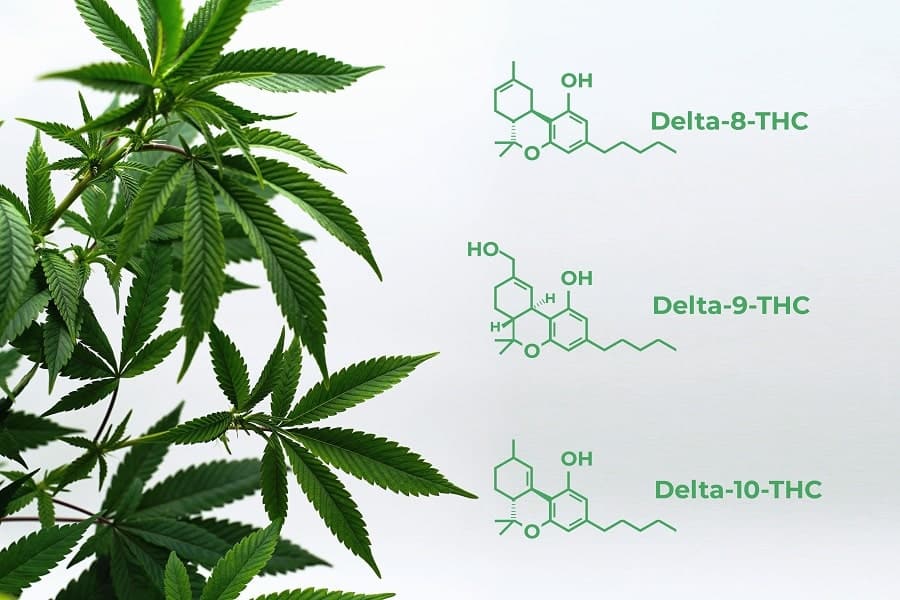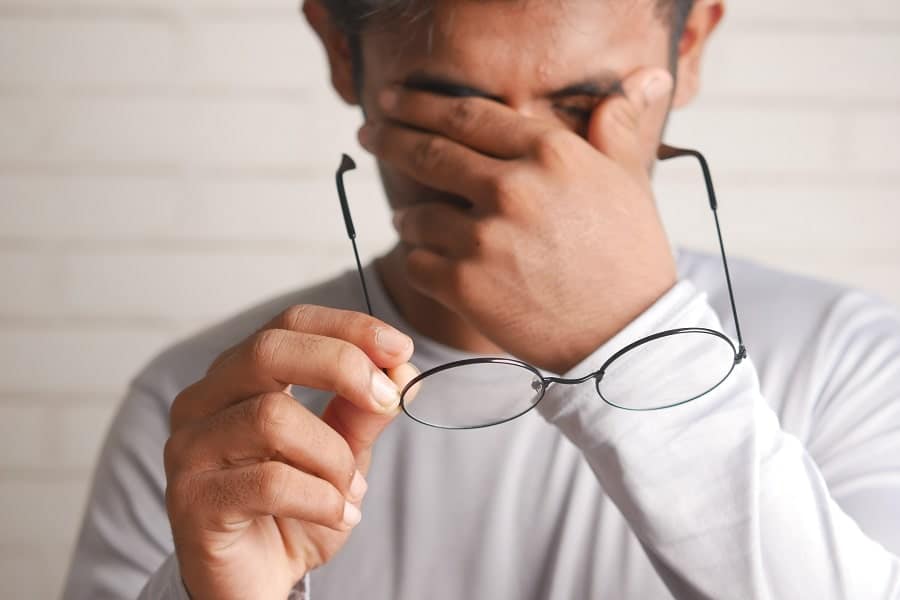We are starting to know: THC makes you high and is illegal. CBD has virtuous effects, does not get you high and is legal. What we know a little less is that, behind the term THC, there is in fact a family of molecules and not a single substance.
The most famous? Delta-9-THC.
But a variant, the Delta-8-THC, is starting to make a name for itself on the cannabis market. So what is the Delta-8, what are its differences with THC classic and what are its effects ? This is what Weedy.fr explains to you right away.
Sommaire
ToggleWhat is Delta-8-THC?
Understanding THC
Before discussing Delta-8-THC, it is essential to understand what Delta-8-THC is. THC (tetrahydrocannabinol), main psychoactive cannabinoid of cannabis. It is in fact he who is responsible for the high effects associated with marijuana consumption.
When we talk about THC, we generally talk about its most common isomer: Delta-9-tetrahydrocannabinol, sometimes spelled Δ-9-tetrahydrocannabinol. In organic chemistry, two isomers are molecules that have the same crude formula, but whose atoms are arranged differently. Although very similar in appearance, the different isomers of the same substance can therefore have different physical, chemical and biological properties.
Let’s just say it: their effects are not the same.
THC has many isomers, the most well-known and common of which is Delta-9. There are others:
- Delta-6a(10a)-THC
- Delta-6a(7)-THC
- Delta-7-THC
- Delta-8-THC
- Delta-10-THC
- Delta-9(11)-THC
Definition of Delta-8-THC
Delta-8-THC is therefore an isomer of THC. Just like the other isomers (and like the CBD), its formula is C21H30O2. It is therefore made up of 21 carbon atoms, 30 hydrogen atoms and two oxygen atoms. Delta-8-THC is present in lower quantities in a cannabis plant than traditional THC (Delta-9), it is nevertheless present. It is therefore a natural cannabinoid, Or phytocannabinoid, to be differentiated from a synthetic cannabinoid (such as HHC), designed in the laboratory.
Differences between Delta 8 and THC
The structural differences between Delta 8 and usual THC influence their effects and therefore their uses. Differences also exist at the legislative level.
Chemical structure
As we mentioned at the start of the article, the main difference between Delta-8-THC and Delta-9-THC lies in their chemical structure. The Delta-8 thus has a double bond on the eighth carbon of the molecular chain, while THC has this double bond on the ninth carbon.
Psychoactive effects
Delta-8-THC produces milder psychoactive effects than traditional THC. Consumers often describe its effects as more subtle and less anxiety-inducing. This therefore brings it closer to CBD, even if the latter is not psychoactive at all.
Legality
The legality of THC in general and Delta-8 in particular varies by country. In the United States, for example, the farm bill legalized hemp/cannabis in 2018. Delta-8 is not considered a specific component of marijuana there and can therefore in certain cases be marketed freely.
In France as in the rest of the European Union, THC is considered a narcotic and, therefore, prohibited. However, the law does not make a clear distinction between the different isomers. In addition, products derived from plants with a THC level of no more than 0.3% are considered legal. It is therefore possible to legally sell, buy and consume products containing Delta-8, albeit in tiny quantities.
To consume cannabis legally in France, you must therefore turn to CBD derivatives.
Medical uses
After classifying THC and its isomers as a psychotropic substance in 1971, the UN recognized themedical usefulness of cannabis and its resin. Concretely, this means that cannabis can be used in the manufacture of medicines without the UN discouraging its use. In France, medical cannabis is nevertheless not recognized and the use of Delta-8 like traditional THC can in no way complement or replace treatment of conventional medicine.
Benefits and Effects of Delta-8-THC
The human body (and that of all mammals) is equipped with a endocannabinoid system (SEC), a set of receptors scattered throughout the body. Many cannabinoids, including Delta-8-THC, are able to bind to these receptors, causing effects. Less studied than Delta-9, Delta-8 has already been the subject of numerous studies.
Suspected effects of Delta-8:
- Anti-inflammatory action: Delta-8-THC could relieve chronic pain and inflammation.
- Reduction of anxiety: Unlike THC, Delta-8-THC appears to have a less anxiety-inducing effect, making it attractive to people sensitive to the psychedelic effects of THC.
- Anti-nausea properties: it would reduce nausea and vomiting, thus offering prospects for patients undergoing chemotherapy or suffering from chronic nausea.
Precautions and side effects
Potential side effects
Considered less psychedelic than THC, Delta-8 remains a psychoactive substance. It can also cause side effects such as dry mouth, THE red eyes and the drowsiness.
Precautions for use
In France, the consumption of THC, whatever it may be, is prohibited. In countries where Delta-8 is authorized, precautions for use are necessary. There FDA (US Food and Drug Administration) warns on several aspects:
- Certain Delta-8 products could cause public health problems.
- There are conflicting reports as to the actual effects of Delta-8.
- Delta-8 has psychoactive and intoxicating effects.
- Delta-8 derivatives often use potentially harmful chemicals to achieve concentrations that are difficult or impossible to achieve in nature.
- Even if a product containing Delta-8 is legal, it should be kept out of reach of children and animals.







